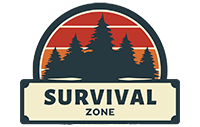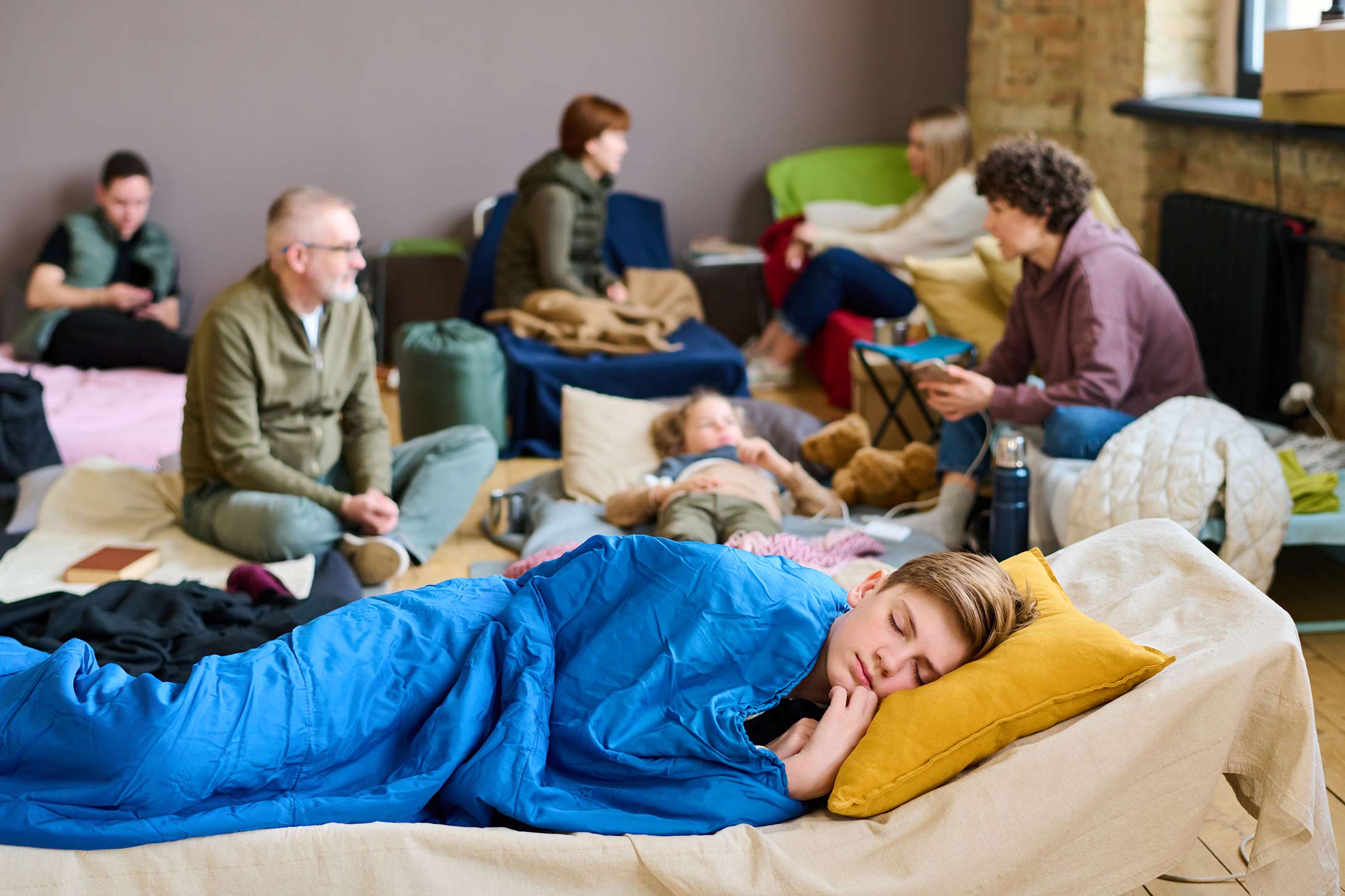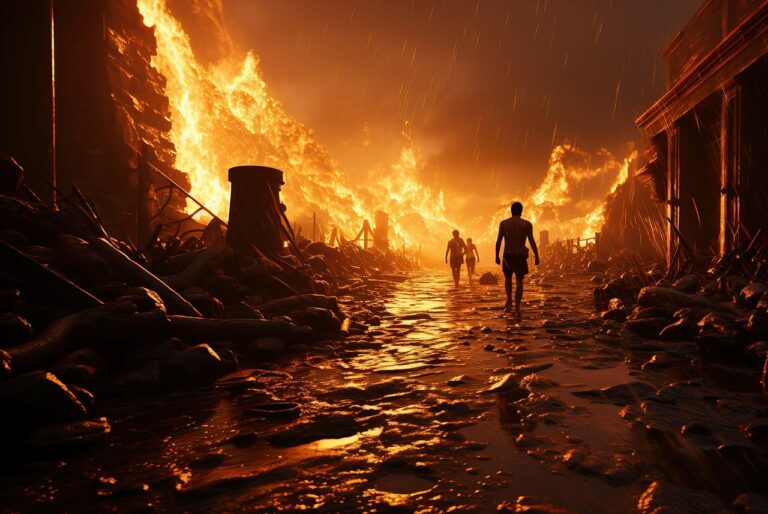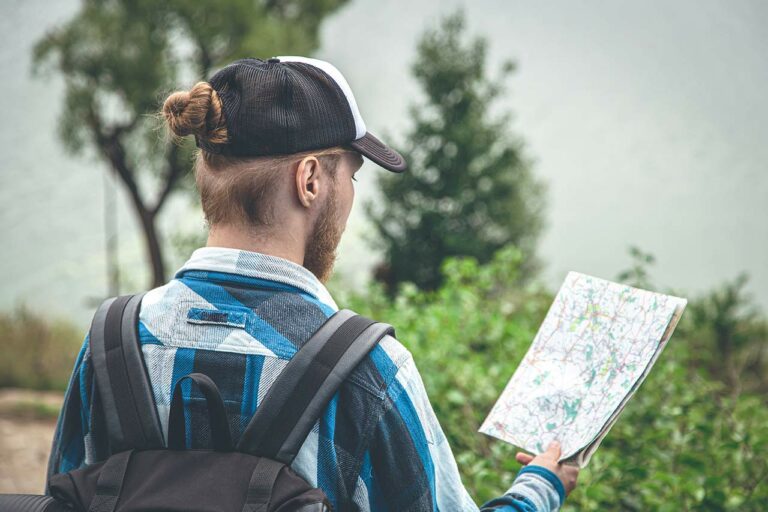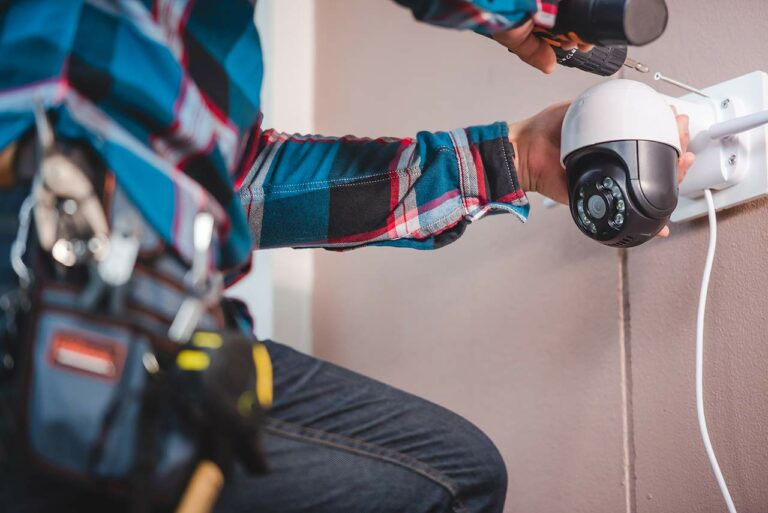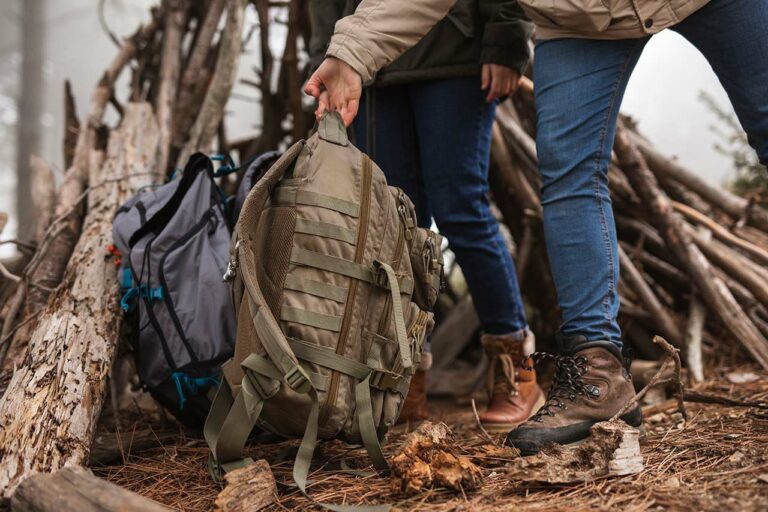Safest Place During Martial Law (Guide To Security)
Martial law can be a frightening concept. When the government declares martial law, it means that civil order has broken down and normal laws are temporarily suspended. This emergency authority is typically enacted to maintain and restore peace during times of intense societal unrest or armed conflict. But it can also place ordinary citizens in a vulnerable position.
Whether martial law is declared due to a natural disaster, an invasion, or civil unrest, knowing the safest places to be will not only help ensure your survival, but can provide a sense of security amidst the chaos. Let’s discuss some potential locations where you can seek refuge during martial law, and how to determine which locations might be best for you.
Safe Places During Martial Law
When martial law is declared, you’ll want to find the safest possible place to be with your loved ones. There are several possible locations you might consider.
Your Home
Your own home can sometimes be the safest place during martial law. It’s familiar territory, and you probably already have supplies and resources on hand. Be sure to reinforce your home by securing potential entry points, like doors and windows. In the event that martial law intensifies, you’ll also want to have an evacuation plan in place.
Wilderness
The wilderness may be an attractive option for those of you who have survival skills and can live off the land. Being far away from urban areas often means less military presence and fewer conflicts. Make sure to choose a secluded location in the mountains or forests where you’re not easily spotted.
Small Towns
Small towns are another option worth considering, at least over urban areas, as their relatively low populations may make them less of a target for strict enforcement during martial law. Be cautious, though, as some small towns can come under intense scrutiny, especially if they’re near military bases or other strategic locations.
Churches and Temples
If you’re inclined toward spirituality, churches and temples could be a refuge during periods of martial law. Historically, these places have been considered sanctuaries and might be overlooked by military forces. This is not guaranteed, however, so don’t rely solely on the goodwill of religious institutions.
Hospitals
While hospitals might seem like good choices due to the availability of medical care, they could be overwhelmed during martial law and might even become targets for conflict. This makes them less ideal as safe locations.
Military Bases or Bunkers
Military bases and bunkers are typically the most secure areas during martial law, but gaining access to them can be difficult if you’re not affiliated with the military. If you do get in, keep in mind you may be subject to strict rules and possible confinement.
Personal Safety During Martial Law
During martial law, it’s essential to prioritize your personal safety. Keep in mind that your personal freedoms may be restricted. You might face curfews or other limitations that could make your daily life challenging. Here are some tips to help protect yourself and stay under the radar of authorities.
Follow Imposed Curfews
Try to follow all imposed curfews and rules set by the military or government. By respecting these rules, you’ll reduce the risk of attracting unwanted attention or being detained. Stay updated with the latest news and regulations, as they may change frequently.
Hide
Hiding is sometimes necessary for your safety. Find discreet and secure hiding spots for yourself and your essential supplies, like food and water. You can do this by keeping supplies in concealed locations within your home, so they’ll be harder to detect during house searches.
Study Your Rights
In case you get arrested or detained, it’s vital to know your rights. While some legal protections might be suspended during martial law, try to remember that you still have basic human rights. To better protect yourself, educate yourself on the legal processes and potential outcomes. Remain calm and composed if you find yourself in this situation.
Maintain Connections
While staying indoors might seem the safest option, don’t underestimate the importance of mental health. Try to maintain social connections, even if it’s through digital means or communicating with neighbors from a safe distance. Staying connected will both help reduce stress, and help you stay informed on any new developments.
Family Safety Measures
During martial law, ensuring the safety of your family is a top priority. Here are some steps you can take to protect your loved ones:
Find a Safe Location
Opt for rural areas or small towns, as they tend to be safer than cities during martial law. A more isolated farm or house in the countryside can offer relative safety due to their geographical location and lower population density.
Have a Plan
Sit down with your family and discuss a plan of action for various scenarios, including a martial law scenario. Make sure everyone knows where to meet in case of separation and how to contact one another. Establish a code word or phrase that only your family knows, so you can quickly identify each other in a chaotic situation.
Stock up on Supplies
In times of martial law, access to essentials, like food, water, and medicine, might become limited. Make sure you have a well-stocked pantry and medical kit at your chosen safe location. Gather necessary survival gear, such as flashlights, batteries, and fire-starting materials.
Stay Informed
When the rules of your world are rapidly changing, it’s important to stay updated on the situation and gather information from reliable sources. Listen to the radio, watch the news, and follow trusted social media accounts. Just be aware of potential misinformation.
Be Discreet
During martial law, it is best to keep a low profile. Avoid drawing unwanted attention to yourself and your family by staying away from large gatherings, protests, and areas with military presence. Keep your plans and preparations to a trusted circle.
Know Your Allies
Seek assistance from local authorities like police or military personnel if necessary. You can also approach religious institutions like churches or temples, as they may offer help or sanctuary.
Natural Disasters and Martial Law
During times of natural disasters, such as earthquakes, floods, or hurricanes, the government might declare martial law to handle the emergency and maintain public order.
When natural disasters and martial law coincide, it’s essential to have a plan in place. Like with any emergency situation, you’re first line of defense is preparation. Stock up on essential supplies like non-perishable food, water, medical supplies, and communication devices. Remember to have a bug-out bag ready for every member of your family, so you can grab it and go if necessary.
While selecting your safest place during martial law in a natural disaster, consider these factors:
Proximity
Stay as close as possible to your home and avoid unnecessary travel during times of unrest, but still maintain a safe distance from any affected areas due to the natural disaster.
Shelter
Choose a location that provides protection from exposure to the elements, as well as possible dangers presented by martial law enforcement.
Communication
Ensure you have a means of receiving updates and essential information about the ongoing disaster and martial law scenario.
When a natural disaster strikes, rural areas might be a safe option. Fewer people could mean less chaos and increased safety during martial law. But always consider local conditions, potential risks from the disaster, and further weather reports before making a decision.
Considerations in Urban and Rural Areas
When considering safe places during martial law, it’s essential to evaluate both urban and rural areas. Each environment has its own set of challenges and advantages.
Urban Areas
In urban areas, like large cities, you might find it easier to blend in with the crowd and stay under the radar. This is especially beneficial if curfews or travel restrictions are imposed. Cities also tend to have more resources like food, water, and medical supplies. But there are drawbacks to staying in heavily populated centers. As densely populated places are often the primary focus of martial law enforcement, you could be at greater risk of encountering police and military presence.
Rural Towns
Rural towns or small communities can prove to be safer havens during martial law. They are less likely to be the center of attention for law enforcement and may have a stronger sense of community and solidarity. Familiarity with your neighbors and surroundings can provide valuable support networks in times of crisis. On the flip-side, rural areas may be more isolated, which can make accessing essential supplies more challenging.
The pros and cons of each setting should be weighed carefully when formulating your plan during martial law.
Considerations in Wilderness Areas
In deep wilderness areas, you may find solace from the chaos and enforcement of martial law. With near-zero population density and distance from law enforcement activities, these locations provide a natural cover for those looking to stay off the grid. Surviving in the wilderness does, however, require extensive outdoor skills, supplies, and preparation to ensure you can meet your basic needs. If you have these skills, it can be a great place to be.
Foreign Nations Refuge
If travel is permitted, leaving your home country for a foreign nation not affected by martial law could offer you temporary refuge. This option necessitates careful planning, as crossing borders might be difficult during times of crisis. You should also be aware of the political climate in the destination country, as they may have their own challenges or risks.
Escaping the Area
While heading to another country is a possibility, it comes with its own set of challenges. The most basic of these is the necessity for a valid passport and potentially a visa, depending on the country you’re planning to go to. Make sure your passport is up-to-date and secure any necessary visas before it becomes urgent.
Depending on the severity of the situation, it’s possible the government may impose restrictions on leaving the country, so you’ll need to act quickly and have a plan in place. Try to avoid using obvious exit routes like major airports, as they can become very crowded or even shut down. Consider lesser-known border crossings and smaller airports or ports as potential alternatives.
When selecting your destination, think about which countries may be more welcoming to refugees from a martial law situation. Be mindful of language barriers and learn a few basic phrases in the local language to get by. You’ll also want to familiarize yourself with the political landscape and any ongoing conflicts in your prospective refuge. Remember the goal is to find a safe haven, not to jump from one crisis to another.
Once you’ve made it to a safe location, take the necessary steps to establish yourself in your new community. Seek assistance from local authorities and other organizations that provide support to displaced individuals. Keep in touch with family and friends back home and stay informed about the ongoing situation.
Law Enforcement and Civil Rights
During martial law, military authorities take over the role of traditional law enforcement, often leading to a loss of civil rights. Expect to see increased presence of military personnel on the streets, enforcing safety measures and curfews.
Your freedom of movement may become restricted as the military might set up checkpoints, require identification, or prohibit you from traveling in certain areas. This is a necessary measure to maintain order and prevent civil unrest.
Searches of personal property, including vehicles, homes, and businesses, may become more common. The likelihood of searches increases in high-risk areas or situations where the military suspects criminal activity. It’s essential to cooperate with these searches to ensure your own safety and expedite the process.
Living Self-Sufficiently
During martial law, less will change in your day-to-day life if you’re already self-sufficient. This means being independent with your own resources and possessing the skills to live off the land.
One option for self-sufficiency is to set up an off-grid cabin, which can provide a secure living space. Your cabin should be equipped with basic amenities, like a sleeping area, cooking facilities, a toilet, and a waste disposal system. To ensure self-sufficiency, you’ll need a water source nearby and some means of producing power. Consider installing solar panels or a wind generator.
When it comes to food, hunting, fishing, and foraging are vital skills to have. By living off the land, you can sustain yourself without relying on external sources, which may be scarce during martial law. Grow your own fruits and vegetables in a garden for a healthier and self-reliant food supply.
A solid knowledge of first-aid and natural remedies can prove invaluable. Be sure to have a stockpile of medical supplies and essential over-the-counter medications.
Remember that during martial law, safety can be unpredictable and change quickly. Assess each situation carefully and make informed decisions about where to seek refuge based on your specific circumstances.
